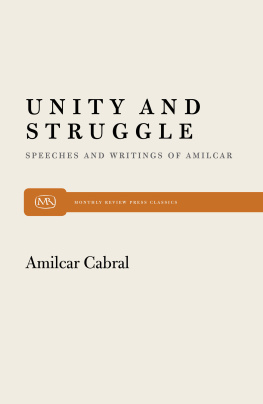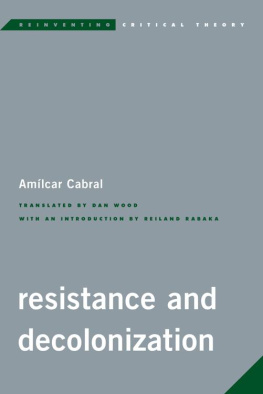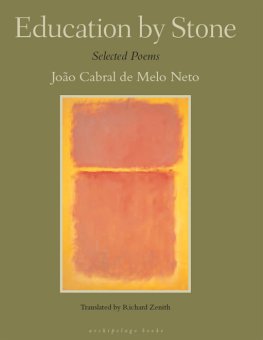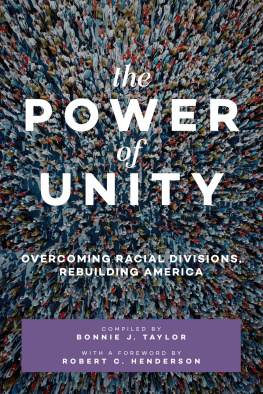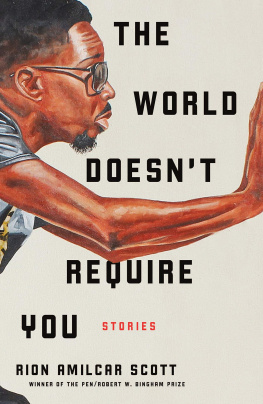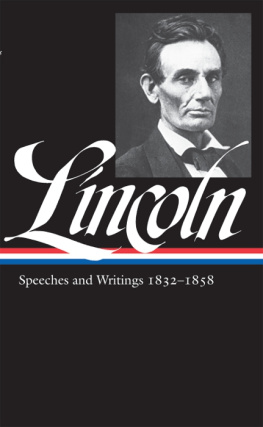Amilcar Cabral - Unity and Struggle: Speeches and Writings
Here you can read online Amilcar Cabral - Unity and Struggle: Speeches and Writings full text of the book (entire story) in english for free. Download pdf and epub, get meaning, cover and reviews about this ebook. year: 1979, publisher: Monthly Review Press, genre: Politics. Description of the work, (preface) as well as reviews are available. Best literature library LitArk.com created for fans of good reading and offers a wide selection of genres:
Romance novel
Science fiction
Adventure
Detective
Science
History
Home and family
Prose
Art
Politics
Computer
Non-fiction
Religion
Business
Children
Humor
Choose a favorite category and find really read worthwhile books. Enjoy immersion in the world of imagination, feel the emotions of the characters or learn something new for yourself, make an fascinating discovery.
- Book:Unity and Struggle: Speeches and Writings
- Author:
- Publisher:Monthly Review Press
- Genre:
- Year:1979
- Rating:4 / 5
- Favourites:Add to favourites
- Your mark:
- 80
- 1
- 2
- 3
- 4
- 5
Unity and Struggle: Speeches and Writings: summary, description and annotation
We offer to read an annotation, description, summary or preface (depends on what the author of the book "Unity and Struggle: Speeches and Writings" wrote himself). If you haven't found the necessary information about the book — write in the comments, we will try to find it.
Unity and Struggle: Speeches and Writings — read online for free the complete book (whole text) full work
Below is the text of the book, divided by pages. System saving the place of the last page read, allows you to conveniently read the book "Unity and Struggle: Speeches and Writings" online for free, without having to search again every time where you left off. Put a bookmark, and you can go to the page where you finished reading at any time.
Font size:
Interval:
Bookmark:
UNITY AND STRUGGLE
Amilcar Cabral
UNITY AND STRUGGLE
Speeches and Writings
Texts selected by the PAIGC
Translated by Michael Wolfers

MONTHLY REVIEW PRESS
NEW YORK AND LONDON
Copyright 1979 by the PAIGC
All rights reserved
Library of Congress Cataloging in Publication Data
Cabral, Amilcar.
Unity and struggle.
These texts amount to some two-thirds of the French edition of his work that was published by Franois Maspero in 1975.
1. National liberation movements Guinea Bissau Collected works. 2. Guinea-Bissau Politics and government Collected works. 3. Cape Verde Islands Politics and government Collected works. 4. National liberation movements Cape Verde Islands Collected works. 5. Partido Africano da Independncia da Guin e Cabo Verde Collected works. I. Partido Africano da Independncia da Guin e Cabo Verde. II. Title.
DT613.75.C335320.966570279-2337
ISBN 978-0-85345-625-4
10 9 8 7 6 5 4 3 2 1
Contents
Basil Davidson
Mrio de Andrade
Abbreviations
CLSTP (Comit de Libertao de So Tom e Principe) Committee (later Movement) for the Liberation of So Tom and Principe
CONCP (Conferencia das Organizaes Nacionalistas das Colonias Portuguesas) Conference of the Nationalist Organizations of the Portuguese Colonies
CUF (Companhia Unio Fabril)
FRELIMO (Frente de Libertao de Moambique) Mozambique Liberation Front
MPLA (Movimento Popular de Libertao de Angola) Popular Movement for the Liberation of Angola
OAU Organization of African Unity
PAIGC or PAI (Partido Africano da Independncia da Guin e Cabo Verde) African Party for the Independence of Guin and Cape Verde
PIDE (Policia Internacional e de Defesa do Estado) International Police for the Defence of the State (created for Portugal by the Salazar regime, extended to Africa after 1954).
Introduction
When Africans of Portugals empire began at last to make their voices heard in the world outside their barricaded colonies, soon after the middle of the 1950s, they found few to listen to them and fewer still to understand the importance of what they were proposing to do. The outside world, they learned, knew little of Portugal itself, let alone of Portuguese Africa; and, knowing little, cared even less.
Yet these Africans and their companions in struggle, fewer than twenty years later, had moved into the very heart and centre of the worlds attention. And no wonder: for, whether greatly admired or as greatly hated, they were seen by their own efforts to have wrecked the forty-year-old dictatorship of Fascist Portugal and destroyed the Portuguese empire. They were seen to have radically changed the balance of African power and influence in decisive areas of the continent, and above all in relation to the racist regimes of the far south and the various African agents of those regimes. They were seen to have built powerful movements of revolutionary challenge and changed the course of African history. And all this they were seen to have done in territories where a more or less complete colonial silence and stagnation had previously reigned.
How was this possible among populations reputed to be among the most backward in all Africa: populations having only one or two per cent of literate persons, possessing almost no access of any kind to modern technology, or to modern ideas, or to modern forms of organization, and meanwhile suffering from the most repressive of all the colonial regimes? How could it be done?
It may be too soon for historys definitive answers. But just as the importance of what these Africans achieved is now very clear, whether in relation to their own territories or to the more general issues of anti-colonial and post-colonial change, so are some of the reasons for their success. Among these were the absolute intransigence of the Fascist regime and the consequences of this intransigence for the thought and practice of African nationalists who had to meet and overcome it; the efficacy of that thought and practice as it developed in largely peasant societies; the international links that were forged with governments and groups willing to give material and moral aid to these nationalists; the fact that Lisbon was obliged to fight wars in three territories at the same time, and to fight them, moreover, on the self-defeating principles of Fascism; and other reasons deriving from these or added to these.
But historys definitive analysis will go beyond these instrumental reasons for a remarkable success. It will ask and answer other and more decisive questions. Who were the men and women who conceived the possibility of liberation, back in the dark days of its beginning in these territories? Who forged the instruments, learned to use them, taught others to use them, led these struggles through every kind of mental ambush and physical barrier? What were their ideas, what was their morality? Whose were the keys that could unlock that seemingly unpassable door to freedom, to any useful unity and progress, and trample on its fortifications? How far can others use the same keys?
These are the questions, no doubt, that matter most to a world still sorely needing keys of this kind; and, happily, these questions can be largely answered by the record as we have it even now. That is what this book is about. These long and difficult campaigns for anti-colonial and post-colonial liberation and development in the African empire of the Portuguese in Angola, Cape Verde, Guinea-Bissau, Mozambique, So Tom produced a number of outstanding revolutionary thinkers who proved able to live their thought in their practice, and who, in doing that, have displayed a rare and often decisive talent for explanation in writing and the spoken word. Among these thinkers, and even at the head of them, was Amilcar Cabral, the author of the writing in this book. Murdered by the agents of Portuguese Fascism in 1973, his work lives after him and is there for inspection. A supreme educator in the widest sense of the word, Cabral can be recognized even now as being among the great figures of our time. We need not wait for historys judgement to tell us that. The evidence is available. Among this evidence are the texts that follow here.
It would be easy to write of him as a person and a friend, though it would also be difficult: easy because of his simplicity and sympathy, his directness, his love of life, his enduring interest in everyone and everything that came his way; and yet difficult, too, because of the depth and complexity of his thought and meditation. Suffice it here to say that he was loved as well as followed, and he was both because he was large hearted, entirely committed, devoted to his peoples progress. But of course you can be devoted and still reach wrong conclusions. Cabral was also loved and followed because events repeatedly proved that he could and did reach right conclusions. The imperfections that were as natural to him as to any other vivid human being were outmatched, it was seen, by intellectual and moral power in all that mattered most, in whatever could be decisive. And he asked of no one what he would not do himself.
When in 1956 he launched his revolutionary party the PAIGC, Partido Africano da Independncia da Guin e Cabo Verde he had five trusted companions and no more. Long before he was killed, the PAIGC had become a national movement of overwhelming power and influence. When he first set out to win support in Europe during 1960, he had to travel under an assumed name, Abel Djassi, and found not many to welcome him. Long before his death in 1973 the meetings he addressed in Europe and outside Europe were attended by thousands, governments asked his advice, other governments listened to him, the United Nations gave him its platform, and a wide audience in many countries looked to him for leadership. He took all this fame in his stride, having no self-indulgence for big words or big claims, and replied that hard work and hard thought in his peoples cause, holding nothing back, were the only factors that could count.
Next pageFont size:
Interval:
Bookmark:
Similar books «Unity and Struggle: Speeches and Writings»
Look at similar books to Unity and Struggle: Speeches and Writings. We have selected literature similar in name and meaning in the hope of providing readers with more options to find new, interesting, not yet read works.
Discussion, reviews of the book Unity and Struggle: Speeches and Writings and just readers' own opinions. Leave your comments, write what you think about the work, its meaning or the main characters. Specify what exactly you liked and what you didn't like, and why you think so.

